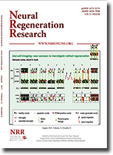
MOLECULAR NEUROBIOLOGY
Scope & Guideline
Bridging Basic Science and Clinical Innovation
Introduction
Aims and Scopes
- Neurodegenerative Disease Mechanisms:
Research on the molecular pathways involved in neurodegenerative diseases such as Alzheimer's, Parkinson's, and multiple sclerosis, focusing on the cellular and biochemical alterations that contribute to disease progression. - Neuroinflammation and Immune Response:
Investigation of the role of neuroinflammation in neurological disorders, including the interaction between glial cells and the immune system, and the implications for treatment strategies. - Molecular Therapeutics:
Exploration of innovative therapeutic approaches targeting molecular mechanisms in neurological diseases, including gene therapy, stem cell therapy, and the use of small molecules to modulate disease pathways. - Neural Development and Plasticity:
Studies on the molecular and cellular processes that govern neural development, plasticity, and regeneration, with an emphasis on understanding how these processes are altered in disease states. - Biomarkers and Diagnostic Tools:
Research aimed at identifying molecular biomarkers for early diagnosis and monitoring of neurological diseases, as well as the development of novel diagnostic technologies.
Trending and Emerging
- RNA and Non-coding RNA Research:
There is a growing emphasis on the role of RNA, particularly non-coding RNAs, in regulating gene expression and their implications in neurodegenerative diseases, highlighting their potential as biomarkers and therapeutic targets. - Microbiome-Gut-Brain Axis:
Research exploring the interactions between the gut microbiome and brain health is on the rise, emphasizing the importance of gut-derived signals in neuroinflammation and neurological disease processes. - Neuroprotective Strategies and Regenerative Medicine:
Emerging studies focus on neuroprotective strategies, including the use of stem cells and exosomes, to promote recovery from neurological injuries and diseases, showcasing advancements in regenerative medicine. - Oxidative Stress and Mitochondrial Dysfunction:
Increasing attention is directed towards understanding the role of oxidative stress and mitochondrial dysfunction in various neurological diseases, which is critical for developing targeted therapeutic approaches. - Precision Medicine Approaches:
There is a trend towards precision medicine in neurology, with research focusing on personalized treatment strategies based on genetic, epigenetic, and environmental factors influencing neurological diseases.
Declining or Waning
- Opioid Research:
Research related to opioid mechanisms and their implications in neurological disorders has decreased, possibly due to evolving public health perspectives on opioid use and a shift towards exploring non-opioid pain management alternatives. - Animal Models of Neurodegeneration:
Although animal models remain crucial for understanding neurological diseases, there has been a noticeable decline in studies focusing solely on conventional animal models, as researchers increasingly explore more complex human-derived models and in vitro systems. - Traditional Neurotransmitter Studies:
Research focusing on classical neurotransmitters and their roles in synaptic transmission has waned, reflecting a broader trend towards investigating novel signaling pathways and non-canonical neurotransmission mechanisms.
Similar Journals

CELLULAR AND MOLECULAR NEUROBIOLOGY
Fostering Collaboration for a Deeper Understanding of Neurobiology.CELLULAR AND MOLECULAR NEUROBIOLOGY, published by SPRINGER/PLENUM PUBLISHERS, stands as a significant contributor to the fields of cell biology and neuroscience, holding a distinguished position in the academic community with an impact factor that places it in the Q2 category for both Cell Biology and Cellular and Molecular Neuroscience, along with Q1 in Medicine (miscellaneous). Since its inception in 1981, this journal has provided a critical platform for innovative research and thought-provoking reviews, fostering a deeper understanding of complex neurobiological mechanisms. The journal’s rigorous peer-review process ensures the publication of high-quality manuscripts that offer valuable insights into cellular processes and neural functions. With a commitment to advancing knowledge and promoting collaboration among researchers, CELLULAR AND MOLECULAR NEUROBIOLOGY remains an essential resource for professionals and students alike, looking to stay updated on the latest developments in neurobiology.

NEUROCHEMISTRY INTERNATIONAL
Driving Progress in Neuroscience Through Rigorous ResearchNEUROCHEMISTRY INTERNATIONAL, published by Pergamon-Elsevier Science Ltd, offers a premier platform for researchers and professionals in the realms of cell biology and cellular and molecular neuroscience. Established in 1980 and continuing its passion for advancing the field, this esteemed journal enhances scientific collaboration with a notable 2023 Q2 ranking in both relevant categories, placing it among the top-tier publications in its discipline with a Scopus rank of 23/97 for Cellular and Molecular Neuroscience. With its focus on groundbreaking research, the journal provides a wealth of vital data and insights that drive forward our understanding of neurochemistry and its implications in health and disease. While not an Open Access journal, NEUROCHEMISTRY INTERNATIONAL is integral for professionals, academics, and students aiming to stay at the forefront of neurobiological research innovations, making significant contributions to both academia and clinical applications.

Neural Regeneration Research
Advancing neural healing through innovative research.Neural Regeneration Research is a premier Open Access journal, published by Wolters Kluwer Medknow Publications, dedicated to advancing the field of Developmental Neuroscience. Since its inception, the journal has established itself as a valuable resource for researchers, professionals, and students alike, providing a comprehensive platform for disseminating the latest findings and methodologies in neural regeneration. With an impressive Scopus Ranks placement of #3 out of 49 in its category and a Q2 Quartile ranking, the journal boasts a significant impact within the academic community, reflecting its high quality and relevance. Since adopting an Open Access model in 2011, it has expanded access to critical research in neural regeneration, fostering collaboration and innovation among scholars globally. Covering various aspects of neuroscience, its converged years from 2006 to 2025 highlight the journal's commitment to ongoing discourse and discovery. Situated in China, the journal not only promotes local insights but also connects the global research community to pressing topics in neuroscience, making it an essential read for anyone involved in this dynamic field.

Journal of Central Nervous System Disease
Advancing knowledge in neurological disorders.Welcome to the Journal of Central Nervous System Disease, a premier Open Access publication dedicated to advancing the understanding of neurological disorders and their underlying mechanisms. Published by SAGE Publications Ltd, this esteemed journal has been serving the scientific community since 2009 and is committed to disseminating high-quality research that spans from clinical neurology to cellular and molecular neuroscience. With an impressive impact factor, the journal ranks within the top quartiles—Q2 in both Neurology and Clinical Neurology, and Q3 in Cellular and Molecular Neuroscience as of 2023. The journal's indexing in Scopus reflects its significant contribution to the field, being ranked #83 out of 400 in clinical neurology and #38 out of 97 in cellular and molecular neuroscience. This essential resource, based in the United States, is crucial for researchers, clinicians, and students looking to stay at the forefront of neurological science. By providing Open Access options, we ensure that groundbreaking research is readily available to a global audience, fostering collaboration and innovation in the study of central nervous system diseases.

Neurochemical Journal
Innovating Understanding of Neurochemical ProcessesNeurochemical Journal, published by MAIK NAUKA/INTERPERIODICA/SPRINGER, focuses on the dynamic and rapidly evolving field of neurochemistry, providing insights into cellular and molecular neuroscience. Despite the discontinuation of its coverage in Scopus, the journal remains a valuable resource for researchers and professionals seeking to explore the biochemical underpinnings of neural function and pathophysiology. With an ISSN of 1819-7124 and an E-ISSN of 1819-7132, the journal aims to publish rigorous research articles, reviews, and notes that push the boundaries of our understanding of neurochemical processes. With a ranking that places its subjects in the lower quartile of their respective fields, Neurochemical Journal offers a platform for innovative studies and discussions among up-and-coming scientists, making it a crucial outlet for advancing the discourse in this critical area of biomedical research.

NEUROSCIENCE RESEARCH
Illuminating New Paths in Neuroscience ResearchNEUROSCIENCE RESEARCH, published by Elsevier Ireland Ltd, is a leading journal in the field of neuroscience, with a notable reputation for disseminating high-quality research that spans a variety of topics within the discipline. With an ISSN of 0168-0102 and an E-ISSN of 1872-8111, this journal serves as a vital platform for both established researchers and emerging voices in the field. Ranking in the Q2 quartile in both Medicine and Neuroscience categories, it has been recognized as a reliable source of innovative findings since its inception in 1984, with continuous publication through 2024. Although it does not currently offer Open Access options, the journal is indexed in Scopus, holding a significant position at Rank #48/113 in General Neuroscience, reflecting its contribution to advancing the understanding of neural mechanisms across various contexts. With its address anchored in Ireland, NEUROSCIENCE RESEARCH plays an essential role in bridging scientific inquiry and practical applications, making it an indispensable resource for researchers, professionals, and students dedicated to the burgeoning field of neuroscience.

JOURNAL OF CHEMICAL NEUROANATOMY
Exploring the Nexus of Neuroscience and ChemistryJOURNAL OF CHEMICAL NEUROANATOMY, published by Elsevier, focuses on the intersection of neuroscience and chemical processes, making it an essential resource for researchers and professionals in the field. With a commitment to advancing the understanding of the cellular and molecular underpinnings of neuroanatomy, this journal has provided a platform for innovative research since its inception in 1988, with its current dissemination period extending through 2024. Operating from the Netherlands, it has earned its place in the Q3 category of cellular and molecular neuroscience as per the 2023 assessments. While it currently does not offer Open Access options, the journal remains a valuable asset in disseminating cutting-edge studies that explore the complexity of the nervous system. With its ISSN 0891-0618 and E-ISSN 1873-6300, the journal serves a diverse audience, including researchers, clinicians, and students, fostering collaboration and innovation in the ever-evolving field of neuroanatomy.

JOURNAL OF MOLECULAR NEUROSCIENCE
Exploring Innovations in Molecular NeurobiologyJournal of Molecular Neuroscience, published by SpringerNature, is a critical resource for researchers and professionals in the dynamic field of neuroscience. With ISSN 0895-8696 and E-ISSN 1559-1166, this journal has established itself as a key player since its inception in 1989, covering a range of topics within Cellular and Molecular Neuroscience and Medicine (miscellaneous). Its impressive rankings, including being placed in the Q2 quartile for Medicine and Q3 for Cellular and Molecular Neuroscience, underscore its scholarly impact, featuring innovative research that informs and advances our understanding of neural processes. The journal does not currently operate under an open-access model, providing rich, peer-reviewed content geared towards academics and professionals seeking comprehensive analyses and breakthroughs in molecular neurobiology. With a publication window extending to 2024, the Journal of Molecular Neuroscience remains dedicated to enhancing the scientific community's knowledge landscape, making it an essential reference for those passionate about unraveling the complexities of the nervous system.

FEBS Journal
Advancing the Frontiers of Biochemical ResearchFEBS Journal is a prestigious, peer-reviewed publication dedicated to advancing the field of biochemistry, cell biology, and molecular biology. Published by WILEY in the United Kingdom, this journal boasts an impressive impact factor and ranks in the top quartile (Q1) across multiple relevant categories, including Biochemistry, Cell Biology, and Molecular Biology, reflecting its significant contribution to scientific research. With an ISSN of 1742-464X and an E-ISSN of 1742-4658, the FEBS Journal publishes original research and comprehensive reviews that push the boundaries of knowledge and innovation in the biosciences. As a vital resource for researchers, professionals, and students alike, the journal offers Open Access options, ensuring that cutting-edge discoveries are accessible to a broad audience. With a publication history converging from 2005 to the present and a robust emphasis on high-quality scholarly work, the FEBS Journal remains an essential platform for the dissemination of significant findings and advancements in the life sciences.

Molecular Brain
Pioneering Research in Cellular and Molecular Mechanisms of the BrainMolecular Brain is a prestigious open-access journal published by BMC, dedicated to advancing the field of neuroscience with a particular focus on cellular and molecular mechanisms. Since its inception in 2008, the journal has been committed to disseminating high-quality research that explores the intricate workings of the brain, particularly in areas related to cellular and molecular neuroscience. Located in the heart of London, England, Molecular Brain has garnered significant recognition in the academic community, boasting a 2023 categorization in the Q2 quartile for both Cellular and Molecular Neuroscience and Molecular Biology, reflecting its growing influence and relevance in these fields. With its Scopus ranks placing it in the top 32% and 38% of its respective categories, the journal serves as an essential platform for researchers, professionals, and students alike, encouraging collaboration and knowledge-sharing through its accessible online format.